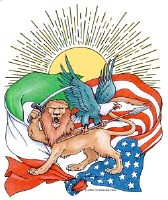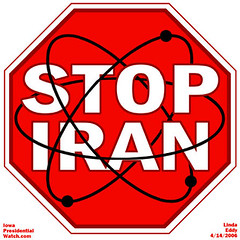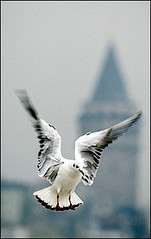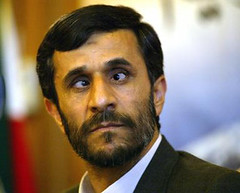By Kenneth R. Timmerma
VOA's Persian News Network defends mullahs' interests, not America's
With every passing day, Iran is getting closer to the bomb. Just how close, nobody who can talk about such things will say. But the United States has a moral imperative to exhaust every possible means of shutting down Iran's nuclear weapons program before we or our allies decide military action has become unavoidable.
Until now, the United States has not used the vast broadcasting tools at its disposal to promote real change in Iran.
Massive budget increases for the Voice of America's Persian News Network (PNN) since 2006 have quadrupled the number of broadcasting employees without enhancing the quality of the programs they produce or the audience they reach.
Worse, when it comes to influencing behavior, or even just promoting a culture of democratic values, we are getting no bang for our bucks. In many cases, PNN's programming actually has made things worse by making the United States appear a feckless power, uninterested in the struggle of the Iranian people for freedom.
A few of the most notorious examples:
c Amateur cell-phone video of the murder of Neda Agha-soltan, a 26-year-old woman who was shot to death during a post-election demonstration on June 20, 2009, went viral in minutes and stirred international outrage over the regime's brutality. PNN waited three days to air the video.
c At the peak of the post-election protests last year, PNN editors told reporters to cover nonpolitical subjects instead of interviewing dissidents, arguing it was not PNN's job to give the dissidents airtime.
c During the U.N. General Assembly in September, Voice of America (VOA) broadcast a documentary on the satirical film "Borat" instead of carrying live coverage of President Obama's address as in previous years or debunking the outrageous statements by Iranian President Mahmoud Ahmadinejad, who later said the United States was the perpetrator and not the victim of the Sept. 11, 2001, attacks.
The result of PNN's dereliction of duty became clear when Mr. Obama recently chose the BBC's Persian service* - not VOA - for his first-ever interview on a Persian television network beaming into Iran. The White House knew what VOA editors refuse to acknowledge: Despite all the millions in U.S. taxpayer investment, PNN has lost audience and is no longer considered a "trusted source" of news by many Iranians.
* Alan note: BBC Persian language programming has exaclty the same failings as VOA in staffing and language control and also repersents the best interests of the Mullah regime via their editor - as Obama well knew when making the choice.
PNN has been plagued with mismanagement, corruption and nepotism, as chronicled in numerous lawsuits against VOA management by PNN employees and government reports. A March 2009 State Department inspector general's audit faulted PNN's management for failing to exercise proper editorial control over content and allowing themselves to be manipulated by subordinates with a pro-regime agenda.
"Lacking (CAPABILITY in) the language of the programs they oversee, as well as a background in Iranian affairs, executive producers must rely on their managing editor to approve the shows' content and resolve differences of opinion among staff," the State Department audit found.
PNN's managing editor, Seyed Ali Sajjadi, is the son of a prominent cleric in Tehran and has consistently shut down programming that might be embarrassing to the Tehran regime while inviting guests onto the Voice of America who have expounded anti-American views.
His father, Seyed Jafar Sajjadi, teaches Islamic studies at the University of Tehran and reportedly is a close confidant of Supreme Leader Ayatollah Ali Khamenei. In an interview on PNN's "Parazit" talk show in April, Mr. Sajjadi swept aside his father's prominent position within the ruling clerical elite. "My father being a member of the clergy has nothing to do with anything," he said.
For his arrogance alone as well as his editorial missteps, Mr. Sajjadi must go.
The newly confirmed members of the Broadcasting Board of Governors, which oversees PNN, already have held several meetings devoted to fixing the many problems in our Persian-language broadcasting.
But the disease is so deeply rooted and has persisted for so long, it has reached the terminal phase. Nothing less than a complete overhaul of our Persian-language broadcasting that tears out Tehran's agents of influence root and branch will suffice.
Even before that, however, the governors must determine the role our broadcasts should play in the high-stakes showdown with Tehran. I think the Voice of America should return to its original mission as standard-bearer of American values and hold high the beacon of liberty to oppressed peoples, starting with the people of Iran. Unfortunately, today it serves merely as a handmaiden to the oppressors.
If VOA is not transformed, it should be shut down. Anything less would be a waste of taxpayer dollars.
Kenneth R. Timmerman is president and chief executive of the Foundation for Democracy in Iran and author of "Countdown to Crisis: The Coming Nuclear Showdown With Iran" (Crown Forum, 2005).
Subscribe to:
Post Comments (Atom)














No comments:
Post a Comment